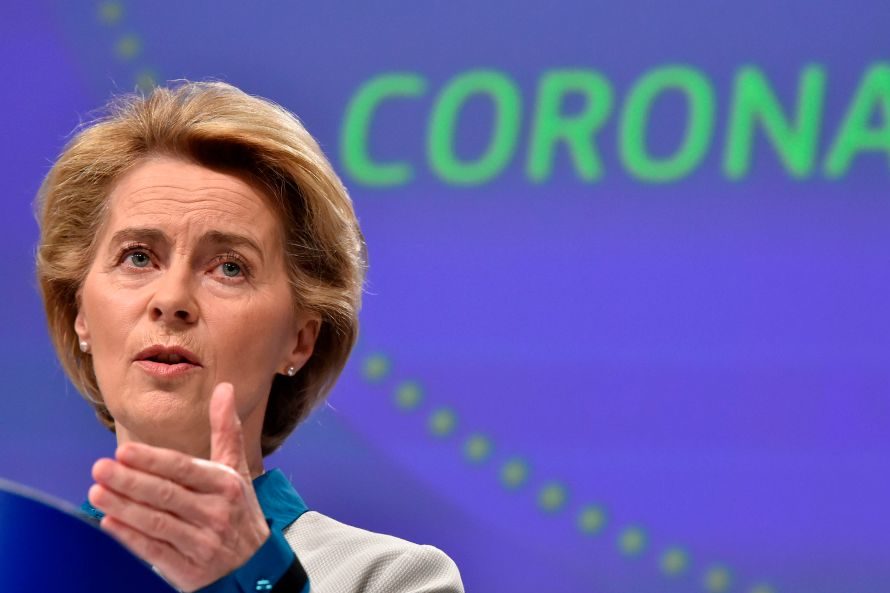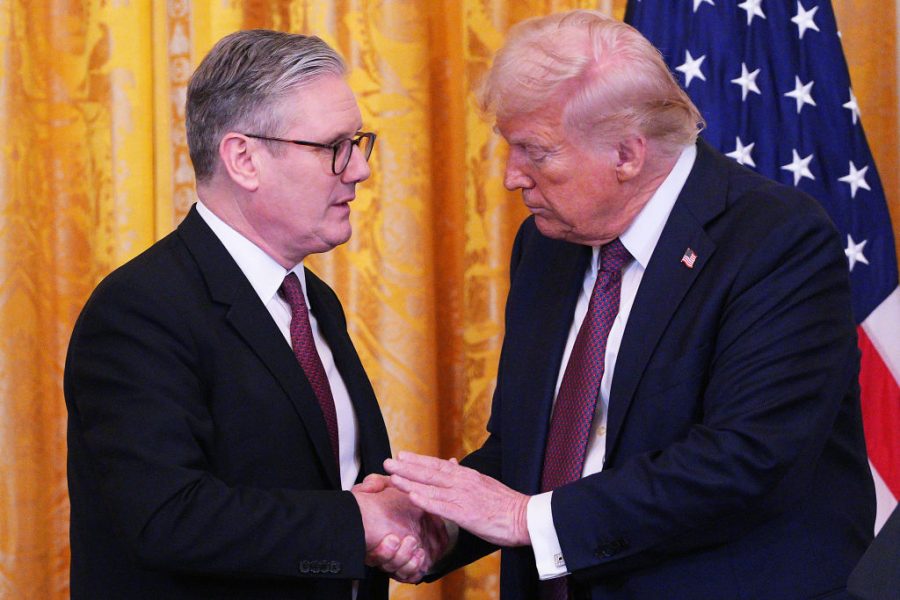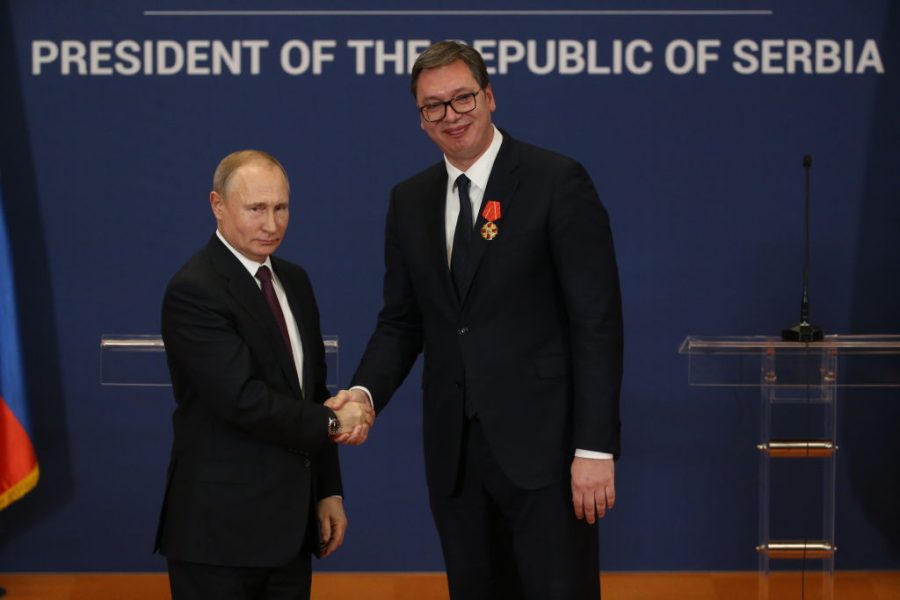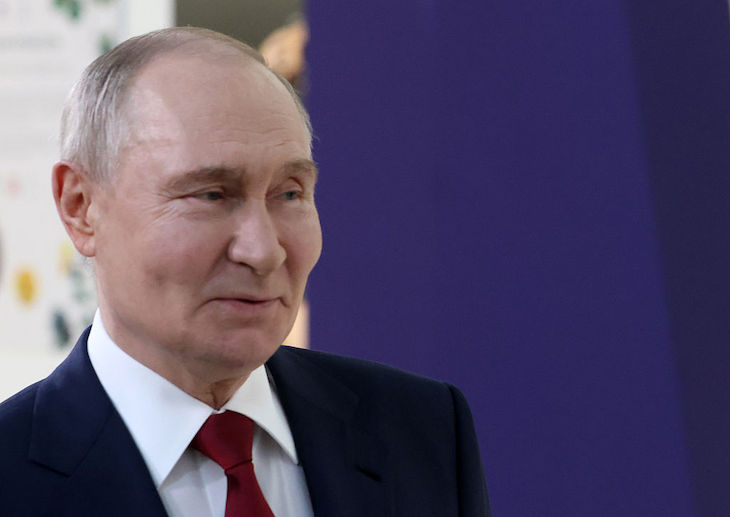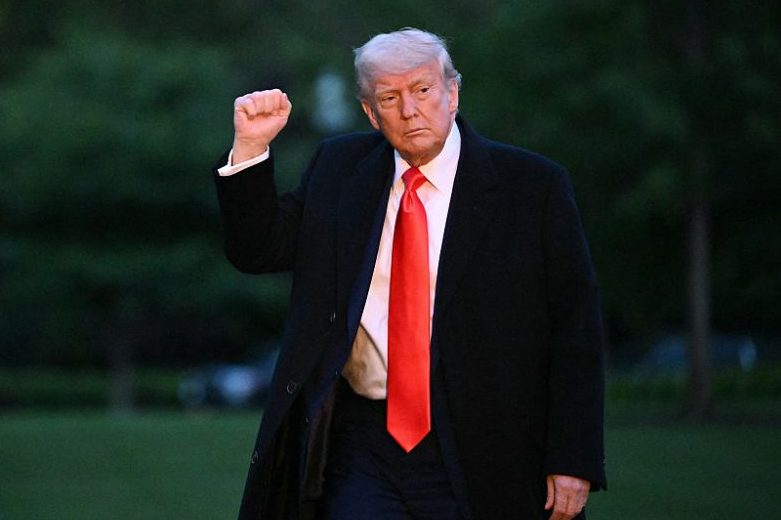Solidarity will be strengthened. Countries will find new ways to co-operate. And Brussels will support the economy, making sure the strong support the weak. European Commission president Ursula von der Leyen is set to unveil the EU’s response to the coronavirus crisis, promising a ‘new Marshall Plan’ to prevent the continent plunging into deep recession.
It is a nice idea. The financial help offered by Harry Truman’s secretary of state George C. Marshall to rebuild Europe after World War Two is rightly credited with salvaging its shattered economy and laying the foundations for half a century of peace and prosperity. The trouble is, the reality is nothing close to the rhetoric. What is an offer from the EU is a fraction of that made available by the United States 70 years ago. In truth, it is its failure to act that will be remembered, not its willingness to do so.
The Marshall Plan was a package of financial assistance offered across Europe in 1948. It amounted to $12 billion of financial aid, most of which was later written off, with the bulk of the money going to Britain, France and Germany. In today’s money, that was about $128 billion. As a percentage of US output, it was the equivalent of about $800 billion. In other words, a lot.
Historians are still debating how crucial it was, as historians tend to do. One simple fact is indisputable, however. In the years after it was launched, Western Europe witnessed an unprecedented period of growth and stability. Indeed, Germans still refer to the Wirtschaftswunder, the French to Le Trente Glorieuses, and even the Italians to their micacolo economico. It worked.
Can von der Leyen’s EU achieve something similar? The challenge is not quite the same. Cities haven’t been burned to the ground, nor factories bombed out of existence. And yet, most major economies are witnessing a collapse in output of 30 percent or more. They need a similar level of help. And yet they are not going to get it. Why not? There are two big problems with the EU’s proposal.
First, there is not much new money on the table. The eurozone countries have already rejected so-called ‘coronabonds’ that would pool debts and allow countries to borrow far more cheaply. That was a step too far for the Germans and the Dutch. They remained wedded to the idea that feckless Italians and Spaniards will squander their money, conveniently ignoring the fact that those happen to be the countries to have been hardest hit by the virus (it is as if Andrew Cuomo was stuck with Buffalo refusing to subsidize Manhattan through the crisis). Instead, budgets are simply being shuffled around, but the sums involved amount to little more than two percent of GDP, an insignificant sum in macro-economic terms. The EU likes to talk up its spending, but with no significant power to tax or borrow it remains largely factious.
***
Get three months’ free access to The Spectator USA website —
then just $3.99/month. Subscribe here
***
Next, it comes against a backdrop of stagnation. George Marshall threw some money at Europe. But more importantly, the continent’s own post-war leaders — most significantly in Germany, but also elsewhere — were reforming and liberalizing their economies. Trade was opening up, tariffs gradually coming down and companies were innovating at a furious rate. The Marshall Plan helped on the demand side, but the supply side was also rapidly improving. None of that is happening in 2020. Instead the eurozone economy is suffocating under the weight of ever more cumbersome rules and regulations, while the euro remains the most dysfunctional currency ever created, sucking demand out the peripheral economies at precisely the moment when it will be most needed.
A Marshall Plan would be a great idea. If the US had a president or secretary of state with the vision to launch and initiative on that scale it would help re-build the global economy. But for the EU to pretend it can do anything on that scale is simply ridiculous. America has neither the money or the will, and it helps no one to pretend it does.
This article was originally published onThe Spectator’s UK website.



